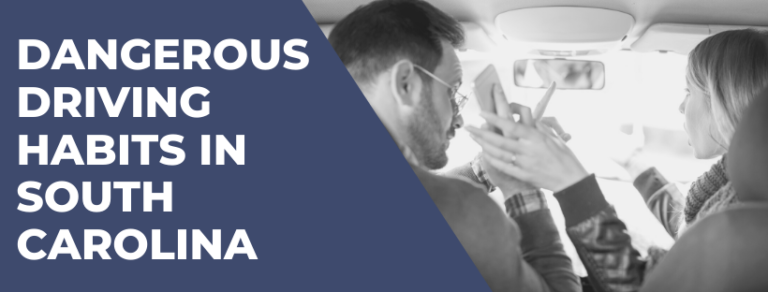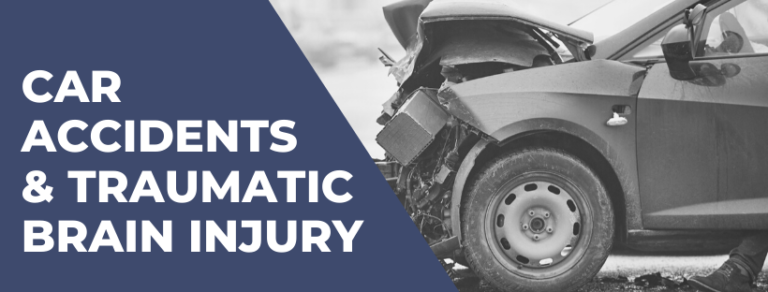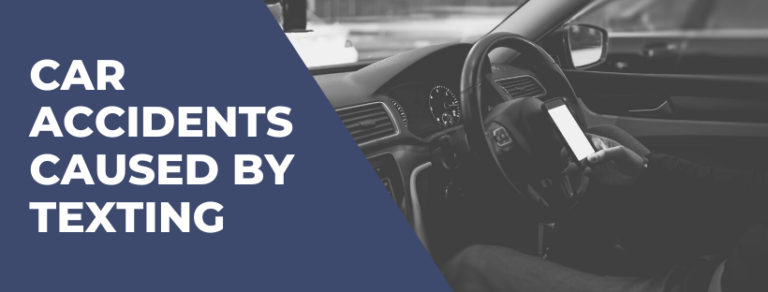A car accident is a stressful and terrifying experience. Unfortunately, they’re also common. Over 5.2 million collisions happened in the U.S. in 2020, injuring just a few thousand short of 2.3 million people.
In South Carolina, one person is injured in a traffic collision every 11 minutes, with the highest number occurring in Greenville County.
With emotions running high, it’s normal to feel panicked and be unable to think clearly. But there are several steps you should take after a car accident to ensure your safety and protect yourself from liability.
Hopefully, you’ll never have to follow these steps, but it’s wise to understand what to do in advance.
We outline what to do — and what not to do — when you’re involved in a car accident.
Check If Anyone Is Hurt and Call 911
The first step to take after a car accident is to ensure your safety and check if anyone is hurt. If you or anyone else is injured, call the police — even if you think another driver or bystander may have already done so. When law enforcement arrives, they will secure the scene and create a police report, which can be a vital piece of evidence if you’re entitled to compensation or wish to file an insurance claim.
What not to do: Do not leave the vehicle if you or your passengers are severely hurt, as it can worsen the injuries. If you do move, get to a safe distance from the impact on the side of the road. However, you must not leave the scene of the accident.
Exchange Information
Once everyone’s safe, you should exchange contact information with those involved in the accident, including names, phone numbers, and insurance policy details.
Tempers can flare after an accident — you may be confused and angry, and the other drivers involved will likely be too. Try to stay calm and be polite. If another driver is aggressive or makes you feel uncomfortable or threatened, retreat to your vehicle or away from them until the police arrive.
What not to do: Avoid apologizing, admitting fault, or playing the blame game, as this can affect your ability to recover compensation.
Document the Scene
Documenting the accident scene is a crucial step to take after a car accident and can be valuable for insurance and personal injury claims. Record as much detail about the scene as possible, using your cell phone to take photographs and videos of your injuries, the location of the accident, the conditions (such as the weather, skid marks, traffic signs, and hazards), and damage to all vehicles involved. It can be helpful to note which direction each vehicle was heading in when documenting the scene. This will help investigators determine how the crash happened — using accident reconstruction if necessary — and identify who is at fault.
You should also record each vehicle’s information, including the make and model, color, and license plate number.
What not to do: Don’t be tempted to record this information later, as your memory may be fuzzy. What’s crucial is that you create a record of the accident scene while the details are still fresh, whether you prefer taking photographs, writing notes, sketching a diagram, or recording a voice note.
Call a Tow Truck
If your car is heavily damaged, you may need it towed. You can access free roadside assistance through the South Carolina Department of Transportation State Highway Emergency Program (SCDOT SHEP) but also check with your insurance company and manufacturer, as some provide additional services. Some credit card companies even offer complimentary roadside services as a perk, while others charge a fee.
What not to do: Don’t feel pressured into accepting a service if an unsolicited tow truck company arrives at the scene. Some businesses will intercept assistance phone calls and offer a price that seems too good to be true, only to pile on hidden costs.
Seek Medical Attention
Unless you’re severely hurt after a car accident and taken to hospital in an ambulance, you might not think it’s worth getting a checkup.
You may have only minor injuries or feel fine, apart from being a little shaken, and decide it’s nothing a bit of rest at home can’t remedy. However, adrenaline can mask your pain, and some injuries, such as concussion and whiplash, don’t show symptoms for hours, days, or weeks.
Injuries are also not always proportional to the impact. Severe spinal and head trauma can result from a fender bender, so it’s always better to be safe than sorry. Your health must be the priority.
Seeing a doctor is also a vital step to take after a car accident that wasn’t your fault, as you may be entitled to significant compensation. If you delay treatment, the at-fault driver’s insurance company may claim your injuries aren’t serious because you failed to initially visit a doctor, or they may argue you were injured later — not during the accident. If you cannot prove otherwise, you may struggle to get the compensation you deserve.
What not to do: Don’t put off medical treatment after your car accident because you’re worried about how much it will cost. If you have a car accident claim, your personal injury lawyer in Greenville can postpone payment until you receive your payout.
Report Your Accident to the Department of Motor Vehicles
Every state has different reporting requirements for car accidents. If you’re in a collision that causes a minor bump or scrape, you might decide not to call the police at the scene. However, you may still need to report your accident to the Department of Motor Vehicles (DMV).
You must report a car accident in South Carolina if it results in death, injury, or property damage worth more than $1,000. You do not need to report the accident immediately, but you must do so within 15 days.
If you called 911 or your local station after your accident and officers created a police report, they will automatically file it with the DMV, allowing you to skip this step.
Call Your Car Insurance Company
South Carolina is a at-fault state , which means you can claim compensation from the party responsible for your car accident. However, you should still contact your insurer even if you can recover damages. Your insurance company may be able to authorize a payment for your medical expenses and vehicle repairs and recover the cost from the other party.
What not to do: A representative from the other party’s insurance company may contact you to ask about your accident and determine how much your claim is worth. Do not apologize or admit fault, as they may argue you are not entitled to compensation. You should also avoid discussing your injuries, as the adjuster may use this against you to justify a lower settlement.
The insurance adjuster may offer you a settlement to resolve the claim now, but you shouldn’t sign any paperwork before speaking to a car accident attorney and fully understanding the long-term implications of your injuries, such as if you need surgery and how long you will be unable to work. The initial offer will be much less than you deserve, and it may not be enough to cover your expenses, especially if your injuries worsen over time.
Keep Records
Evidence can be the difference between being financially stable during your recovery and struggling to make ends meet because you can’t prove you were not responsible for your car accident.
That’s why keeping accurate records is a vital step to take after a car accident. You should retain evidence of all expenses related to your accident, including your medical bills, transportation costs, and lost wages.
It can be helpful to keep a journal of your medical appointments, including dates and times, your attending physician, and the treatment provided or medication prescribed.
You should also log your physical pain and how your injuries affect your daily life. Memories fade — you probably can’t remember how much pain you felt on a scale of one to ten on a specific day four months ago. It’s much harder to dispute a written record of you barely being able to climb out of bed because you were in excruciating pain or the emotional impact of being unable to play with your children or cook independently.
What not to do: Do not exaggerate or fabricate your symptoms or other information. Honesty is always the best policy. Likewise, do not censor yourself because you’re worried about someone else reading your journal. Your details are confidential, and our personal injury lawyers are compassionate and non-judgmental. Your wellbeing is our primary concern, and we will only ever use pertinent information to get you the maximum possible compensation.
Contact a South Carolina Car Accident Lawyer
The final step you should take after a car accident is to contact a personal injury lawyer to find out if you have a claim. Our Greenville car accident lawyers do so much more than explain your legal rights and file paperwork. We are partners in your claim. We will prioritize your health and wellbeing, investigate how your accident happened and who is responsible, work with doctors and expert witnesses to prove the extent of your injuries and losses, deal with insurance adjusters so you don’t have to, negotiate the best possible settlement, and present your case at trial.
What not to do: Don’t hesitate to get in touch, even if you’re not sure whether you have a claim or you feel responsible for the crash — you may still be entitled to compensation if you are partly at fault.
Knowing what to do after a car accident can help you navigate the aftermath and move forward. If you or a loved one was injured in South Carolina, we offer a free, no-obligation case review so you can see how we can help.





